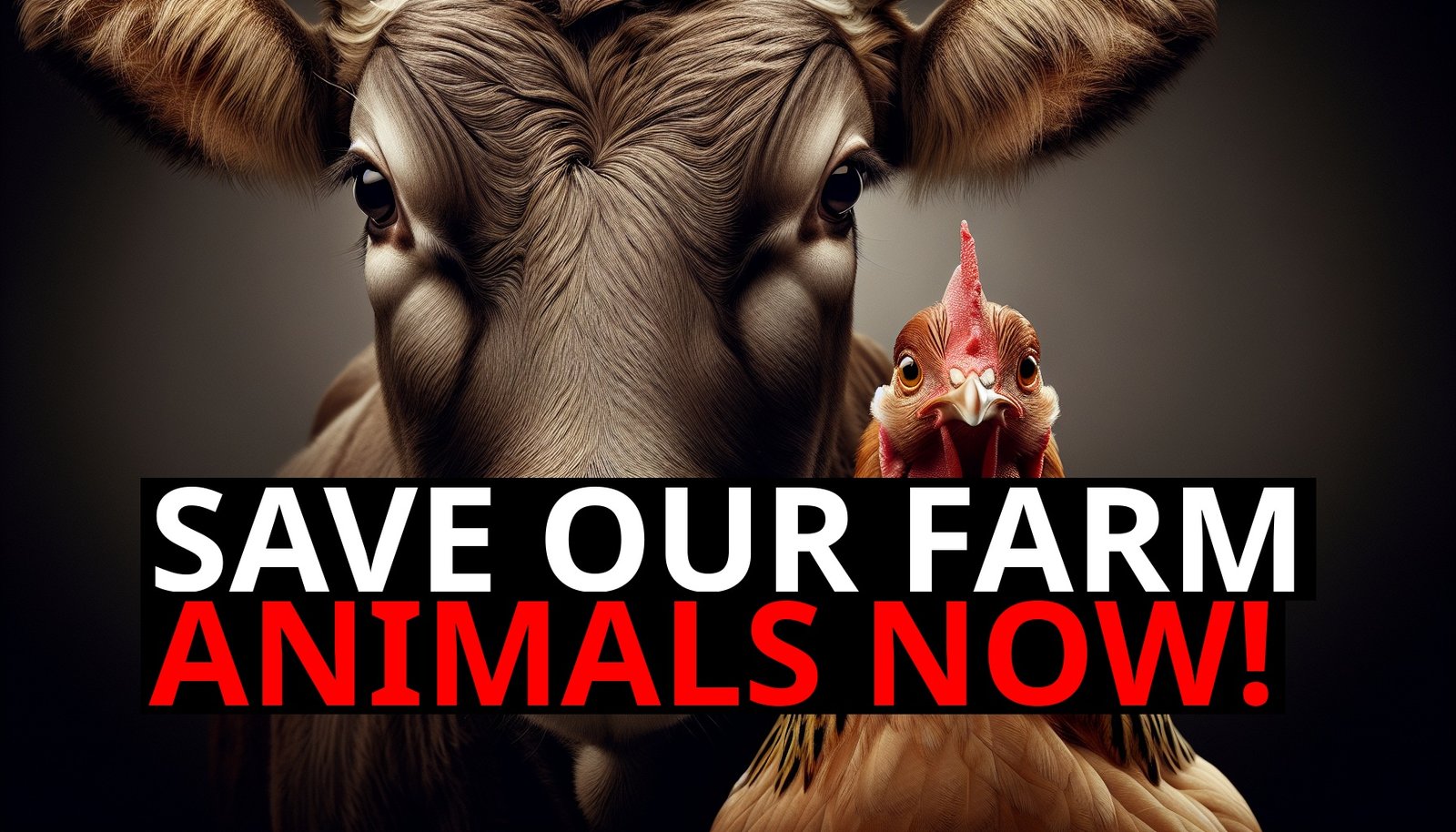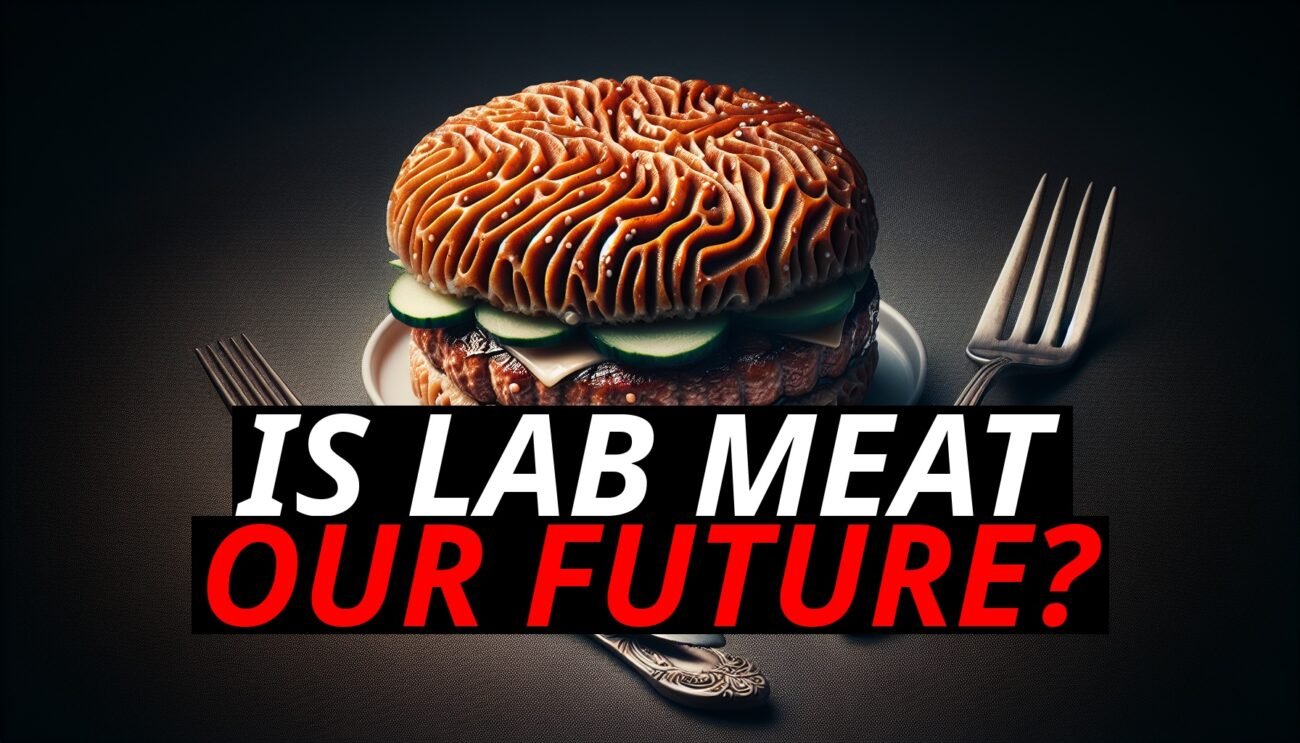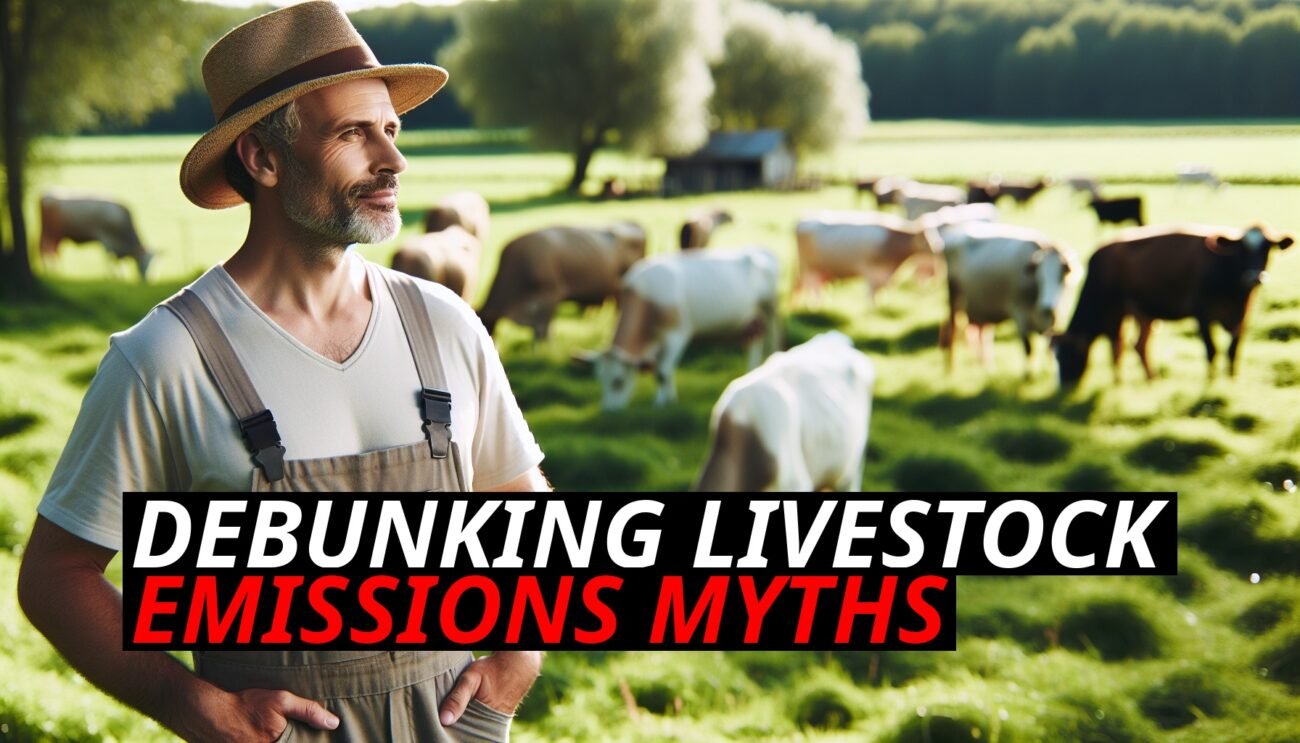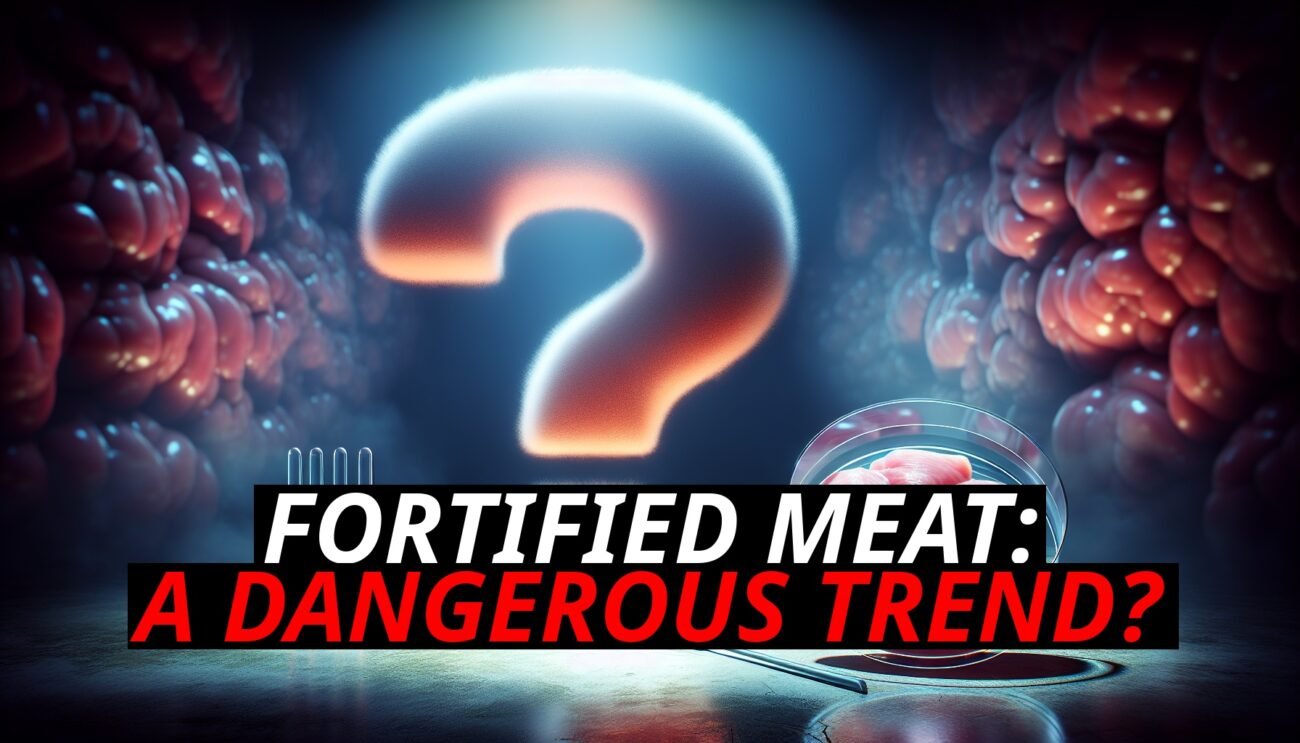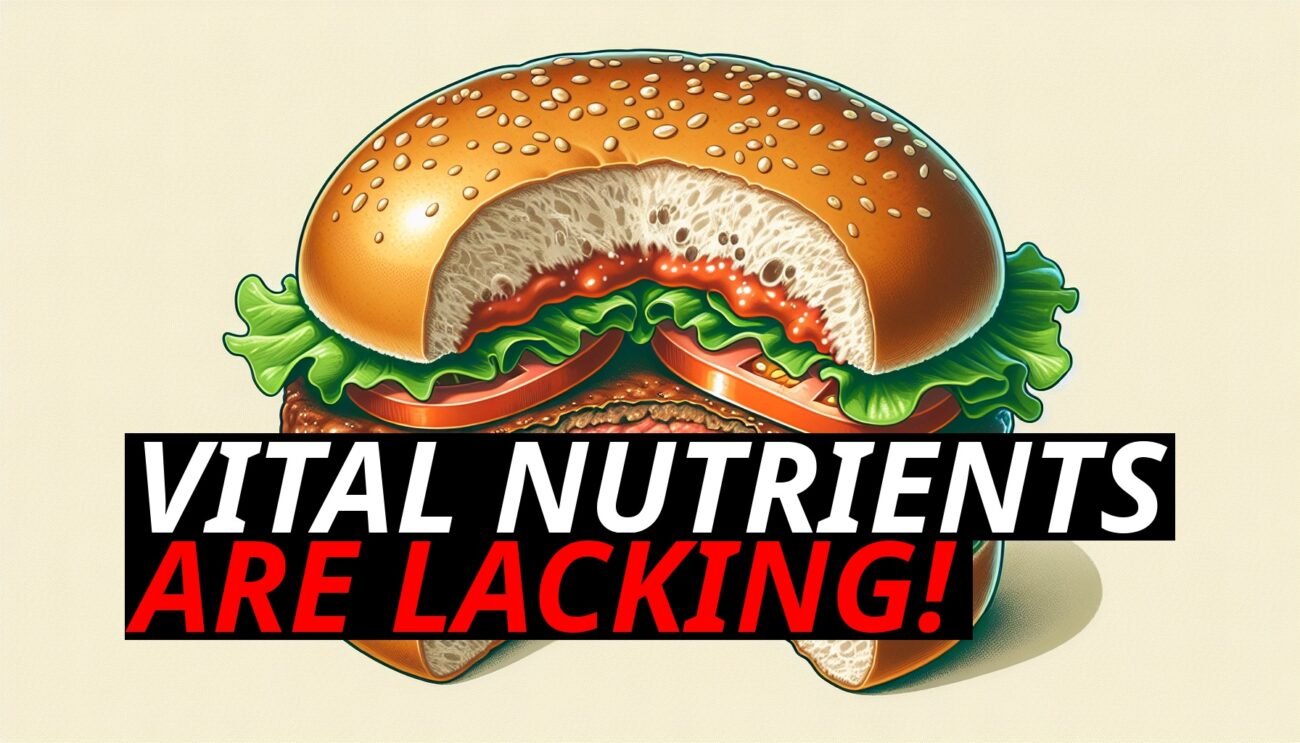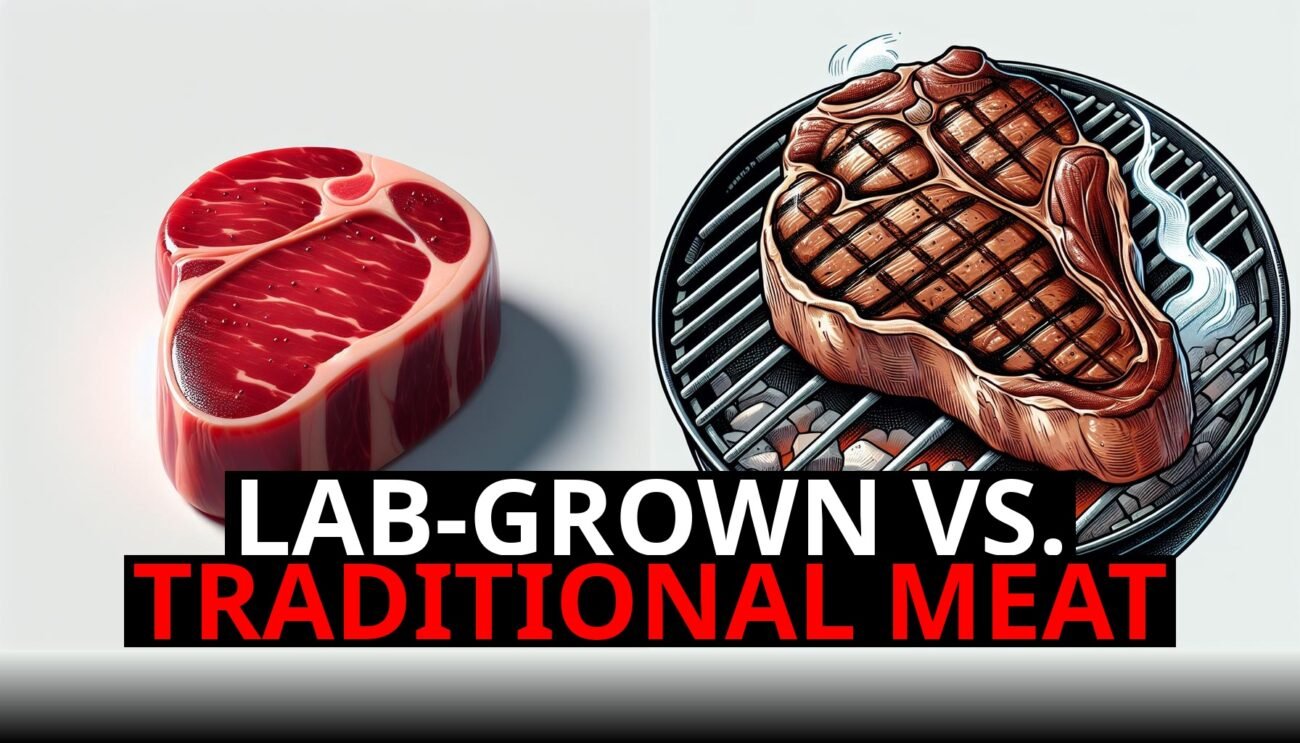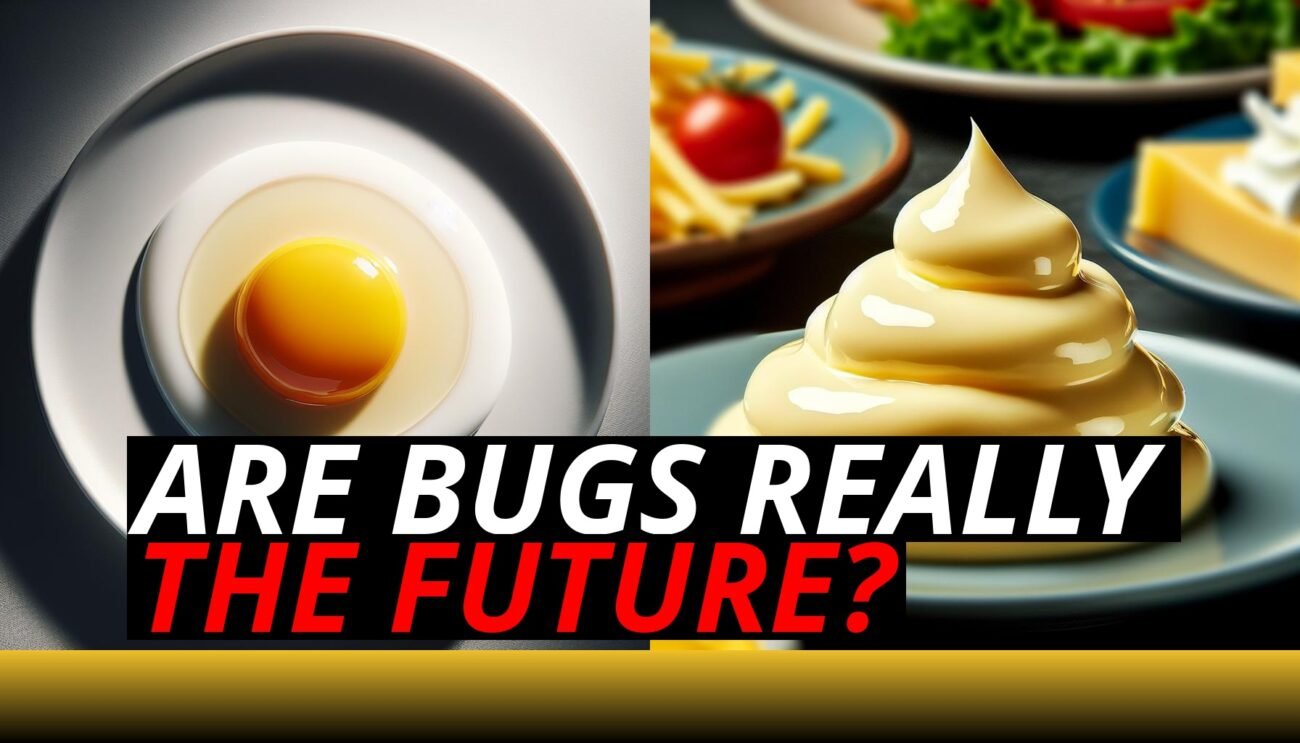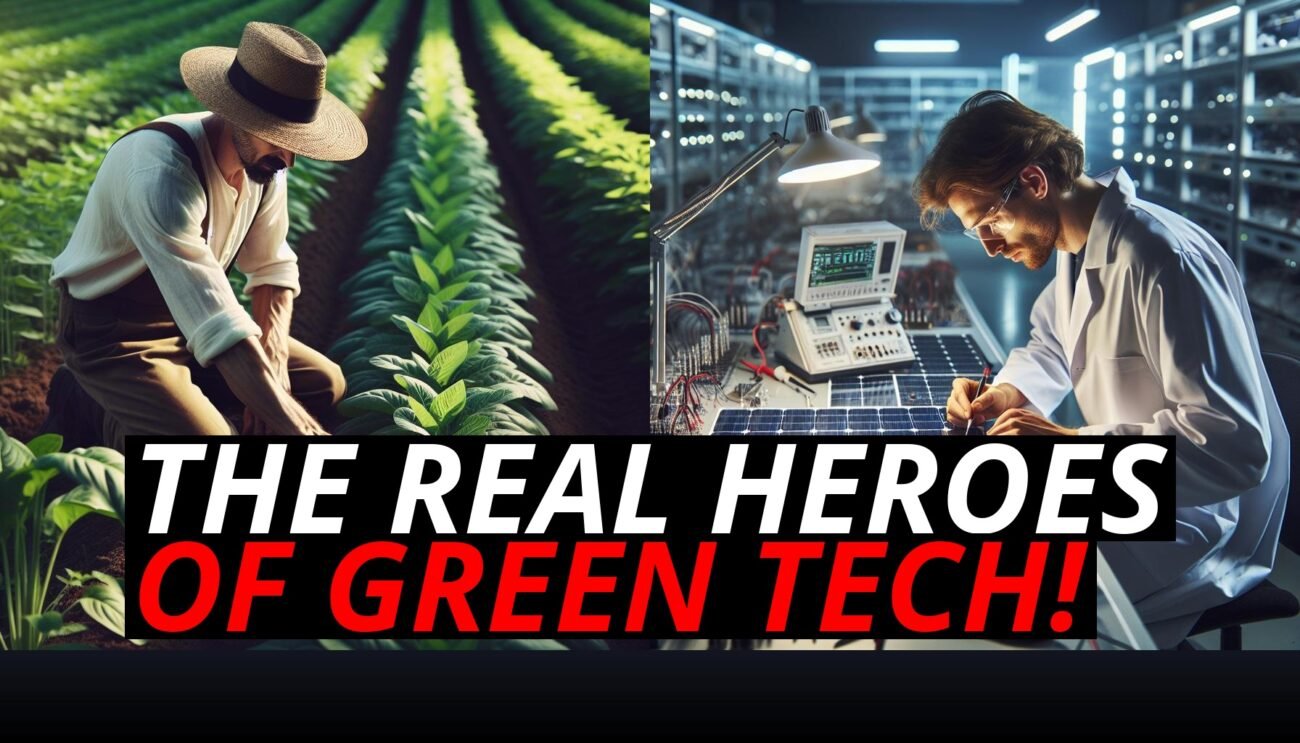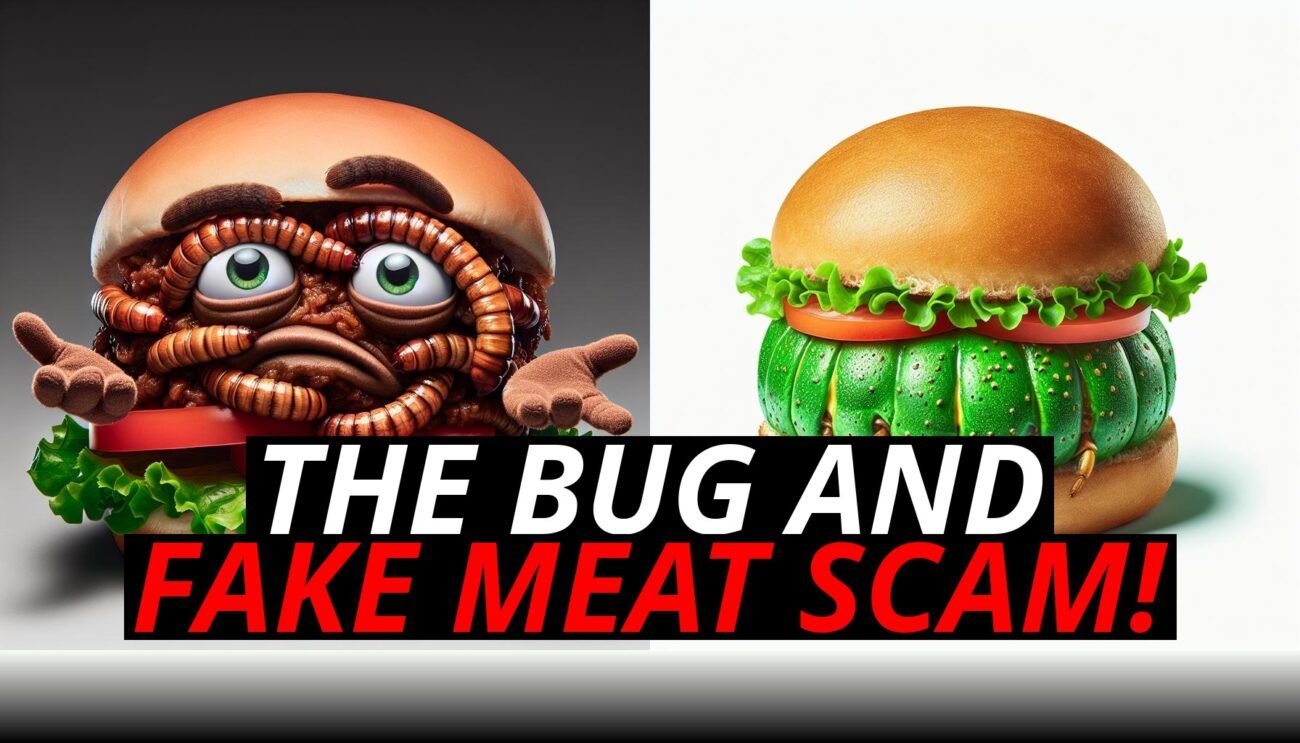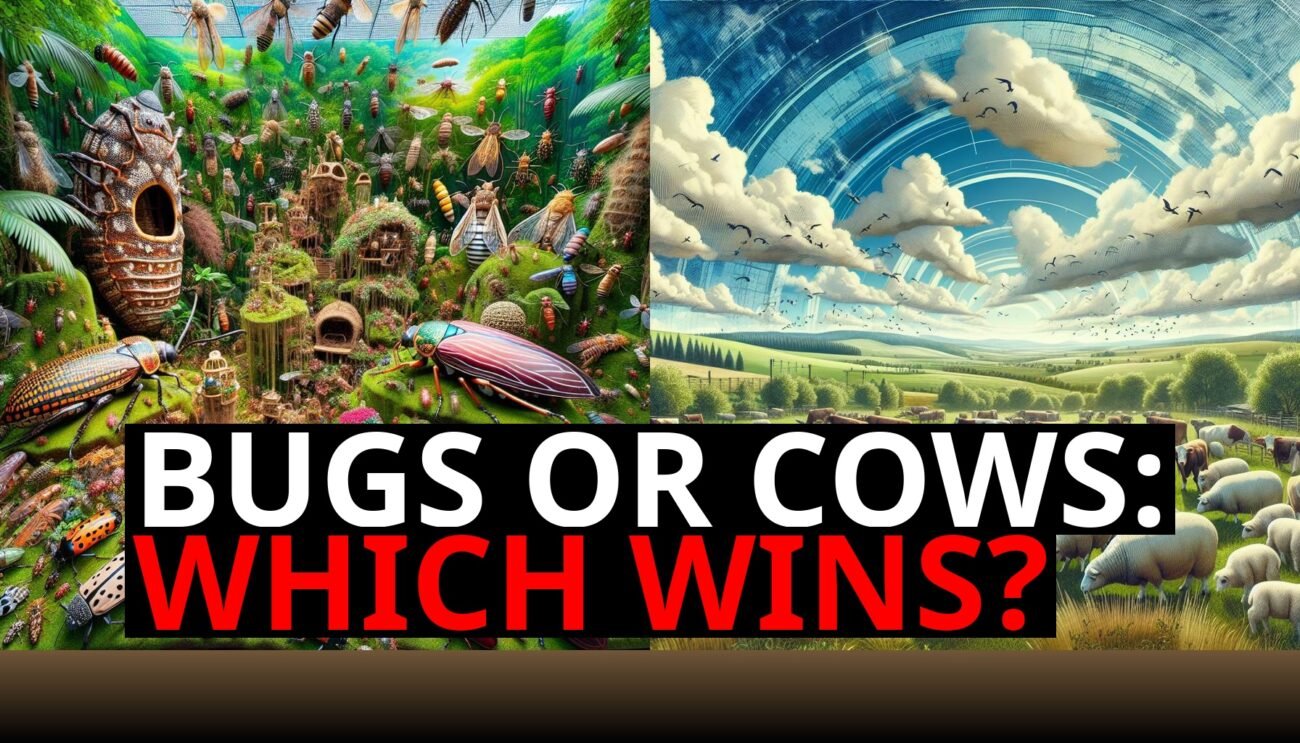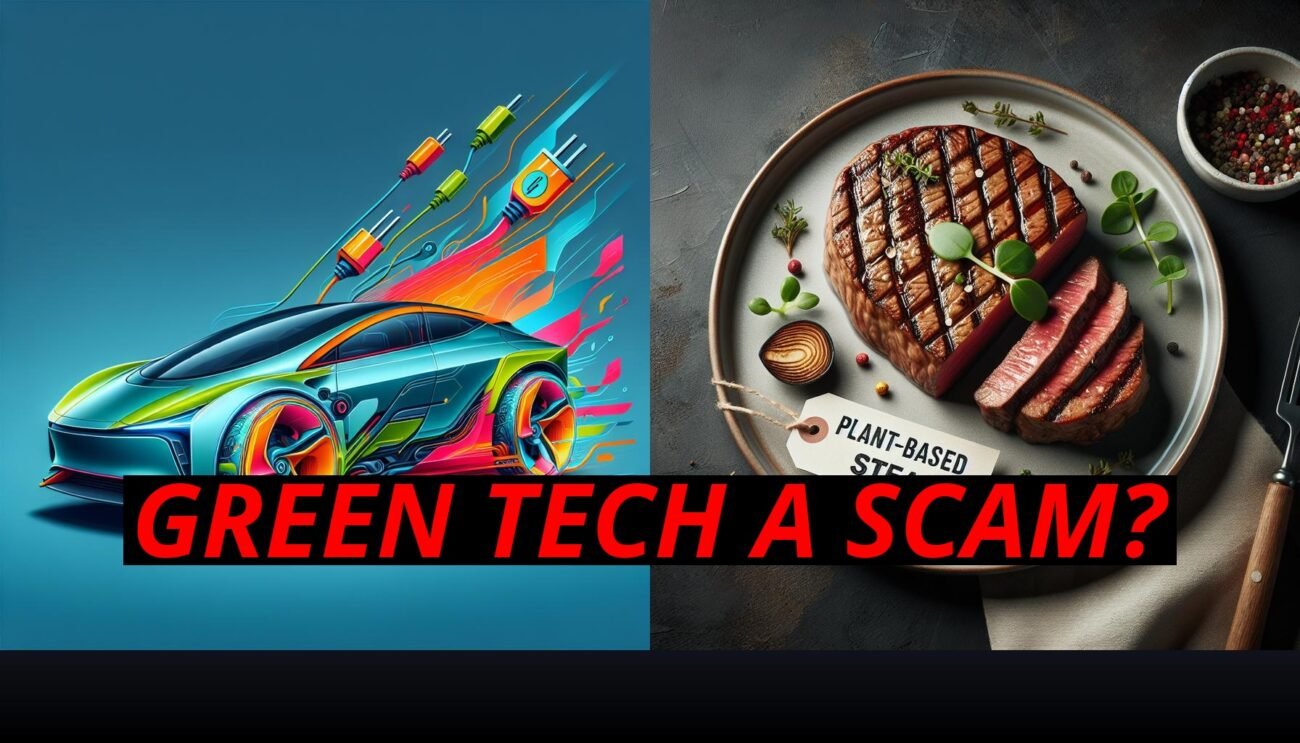The push to replace traditional livestock with bugs and fake meat has gained momentum in recent years, with claims that these alternatives are more sustainable and environmentally friendly. But what if we’re looking for solutions in the wrong places? Cows, chickens, and other livestock, when properly managed, already provide a more sustainable and effective way to feed the world.
Instead of jumping on the bug-eating bandwagon or embracing lab-grown meat, let’s explore why we don’t need to replace livestock and how traditional farming systems, when managed responsibly, are already doing a better job of providing nutrition and protecting the environment.
The Sustainability Of Livestock: It’S All In The Management
It’s no secret that industrial-scale livestock farming can have negative environmental impacts. But here’s the catch: properly managed livestock systems don’t just mitigate these effects—they can actively improve ecosystems. The issue isn’t with cows or chickens themselves; it’s with the way we raise them.
Here’s how sustainable livestock farming can work:
- Regenerative grazing: When cows are rotated across pastures, their grazing encourages the growth of healthy plants, which helps sequester carbon in the soil. This natural process captures carbon dioxide from the atmosphere, making well-managed livestock systems an ally in the fight against climate change.
- Nutrient cycling: Livestock produce manure, which can be used to fertilize crops and improve soil health. This creates a closed-loop system where waste becomes a valuable resource, reducing the need for synthetic fertilizers and keeping nutrients in the soil.
- Biodiversity support: Livestock grazing helps maintain biodiversity by preventing certain plants from dominating the landscape and allowing a variety of species to thrive. This supports a healthier and more resilient ecosystem.
In contrast, bug farms and fake meat factories often require energy-intensive processes that can negate the environmental benefits they claim to offer. Livestock, when raised in harmony with nature, provide a simpler, more effective solution to sustainable food production.
Eggs, Milk, And Meat: Nutritional Powerhouses
Livestock aren’t just environmentally beneficial—they’re also nutritional powerhouses. Eggs, milk, and meat provide a wealth of essential nutrients that are difficult to replicate with bugs or fake meat.
Here’s why livestock products are tough to beat:
- Complete proteins: Meat, eggs, and dairy provide all nine essential amino acids, making them a complete source of protein. While bugs can offer protein, they often lack the nutritional diversity that comes with livestock products.
- Fat and fat-soluble vitamins: Livestock products are rich in healthy fats and fat-soluble vitamins like A, D, and E. These nutrients are crucial for overall health, and they’re often missing from bug-based diets, which tend to be lower in fat.
- Nutrient density: Eggs and dairy products, in particular, are incredibly nutrient-dense, meaning they provide a wide range of vitamins and minerals in relatively small amounts of food. This makes them an efficient source of nutrition for people of all ages.
Bugs may offer a quick protein fix, but they simply don’t compare to the complete, balanced nutrition that livestock products provide. When we already have access to such nutritious foods, why try to replace them with alternatives that fall short?
Bugs And Fake Meat: The Efficiency Myth
One of the biggest arguments in favor of bug farming and fake meat is that they are more efficient than traditional livestock farming. But this claim overlooks some key factors that make livestock more sustainable than these alternatives.
Here’s why livestock are more efficient than you might think:
- Natural grazing: Cows, sheep, and goats can graze on land that isn’t suitable for crops, converting grass into high-quality food without competing with humans for resources. This means that livestock can make use of marginal land that would otherwise go unused, turning it into a source of nutrition.
- Minimal processing: While bugs and fake meat require processing to become edible, livestock products like eggs and milk are ready to consume with minimal intervention. This reduces the energy and resources needed to get food from the farm to the plate.
- Renewable resources: Chickens lay eggs, cows produce milk, and neither animal needs to be killed to provide food. This makes eggs and dairy renewable resources that can be harvested continuously, unlike bugs, which need to be harvested and replaced in cycles.
By focusing on improving sustainable livestock practices, we can produce food in a way that’s not only environmentally friendly but also efficient—without the need to turn to bugs or fake meat as alternatives.
Livestock And Local Economies: A Practical Solution
Another reason livestock shouldn’t be replaced is their role in supporting local economies. Around the world, millions of small-scale farmers depend on livestock for their livelihoods. These farmers are often at the forefront of sustainable agriculture, using time-tested practices that work with nature to produce food.
Here’s how livestock support local and sustainable food systems:
- Economic stability: Livestock farming provides steady income for small-scale farmers, allowing them to support their families and contribute to their communities. Replacing livestock with bugs or fake meat could disrupt these local economies, especially in regions where animal husbandry is a vital part of life.
- Cultural significance: In many cultures, livestock play an important role in tradition and identity. From dairy farming in Europe to cattle herding in Africa, livestock are deeply embedded in the cultural fabric of societies around the world. Trying to replace livestock with bugs or lab-grown meat risks erasing these cultural connections to food and farming.
- Food security: Livestock farming provides a reliable source of food that can be produced locally, reducing the need for long, complex supply chains. This makes communities more resilient and less dependent on imported food, which is particularly important in times of crisis.
Rather than looking for high-tech solutions like fake meat or bug farms, we should focus on strengthening local livestock systems, which already provide sustainable, practical, and culturally significant ways to produce food.
The Real Future Of Sustainable Food: Livestock, Not Bugs
The bug and fake meat movements are often framed as the future of sustainable food, but the reality is that livestock, when raised responsibly, are a far better solution. We don’t need to replace cows, chickens, or other animals with bugs to achieve sustainability—in fact, we’d be better off focusing on improving the systems we already have.
Here’s why livestock are the future of sustainable food:
- Improved livestock management: By adopting regenerative agriculture practices, we can raise livestock in a way that heals the land, reduces greenhouse gas emissions, and promotes biodiversity. These practices have been shown to sequester carbon and improve soil health, making livestock farming a powerful tool in the fight against climate change.
- Nutritional superiority: Livestock products like eggs, milk, and meat provide complete nutrition in a way that bugs and fake meat simply can’t. They offer essential vitamins, minerals, and proteins that are necessary for human health, making them a vital part of a balanced diet.
- Local and sustainable: Livestock farming supports local economies and promotes food security by providing a reliable source of nutrition that can be produced locally. This reduces the need for energy-intensive processing and transportation, making livestock a more practical and sustainable choice.
Rather than trying to reinvent the wheel with bug farming or fake meat, we should invest in sustainable livestock systems that work with nature and provide the nutrition we need.
Conclusion: Embrace Livestock, Not Bugs
The push to replace livestock with bugs or fake meat is built on the idea that these alternatives are more sustainable. But the reality is that properly managed livestock systems are already providing a better solution. By focusing on improving sustainable livestock farming practices, we can continue to produce food that’s good for both people and the planet—without the need to embrace bugs or fake meat as the future of food.
Cows, chickens, and other livestock aren’t the problem—they’re part of the solution. Let’s embrace the nutritional, environmental, and economic benefits they bring, and stop trying to replace them with less effective alternatives.

